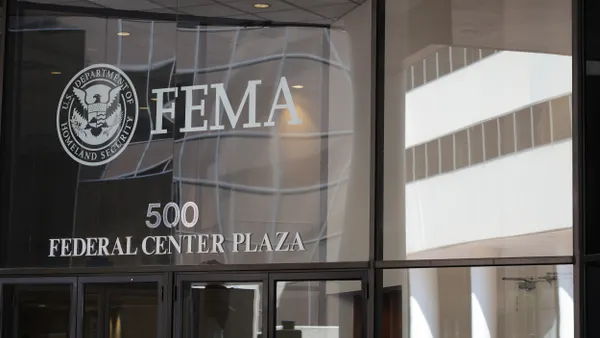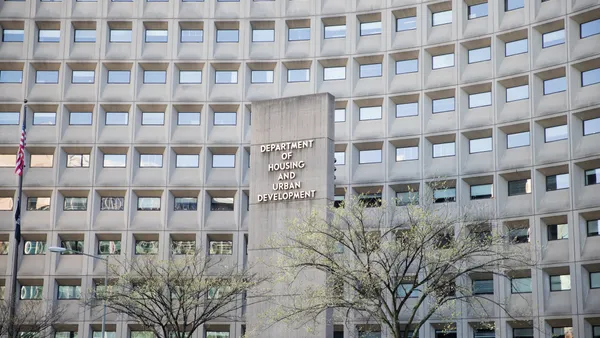Dive Brief:
- If cities are to become more resilient in the face of threats from climate change, they need to focus on building partnerships internally, with each other and with the private sector, leaders said Monday.
- During a panel discussion at the Atlantic Council in Washington, DC to coincide with the launch of the Adrienne Arsht-Rockefeller Foundation Resilience Center, former New Orleans Mayor Mitch Landrieu was one of several speakers who said resiliency had to be built into every area of government operations. He added that working together with private and public partners is far more effective than going it alone, especially after a major weather event like Hurricane Katrina and similar superstorms.
- "This is what you learned in kindergarten,” Landrieu said. “When a problem is so big that you can't solve it by yourself or there's so much going on that you can't get what it is that you need, you have to find friends."
Dive Insight:
It was not just public sector representatives willing to partner with the private sector; there also appears to be a growing willingness for business to partner with government to help solve some of the biggest problems that face cities, including climate change. "It's a team sport, and I think the bigger the teams get, the more we're going to be able to achieve," Francis Bouchard, group head of public affairs and sustainability at the Zurich Insurance Group, said during the panel discussion.
That changing mentality around partnering with the private sector should also extend to changing the mentality around cities’ efforts to prepare. Landrieu said in the aftermath of Hurricane Katrina, which killed over 1,500 people and caused $125 billion in damages, he told Jeff Hebert, then the city’s chief resilience officer, that preparedness had to be a key part of the conversation at all levels of city government. "My instruction to Jeff, one he followed with precision was, don't bring me a budget — don't bring me an idea — that resilience is not a part of,” Landrieu said. “As a matter of fact, you have to measure it according to resilience."
For his part, Hebert said on the panel that in the aftermath, he was keen to work with cities such as Paris, Rome and Norfolk, VA to learn about their flood mitigation efforts and best practices so the city’s infrastructure could be prepared for the next major storm. “Solutions that rise up are best,” he said.
Aside from partnering, Landrieu said it is impossible to overprepare for such events like extreme weather, as circumstances can change quickly and leave city leaders scrambling. "Whatever it is that you got ready for, you might have been ready for something bad to come around the corner, and every time you were ready for something, something bigger and badder came,” he said. “What you have to be ready for is whatever came around the corner."










